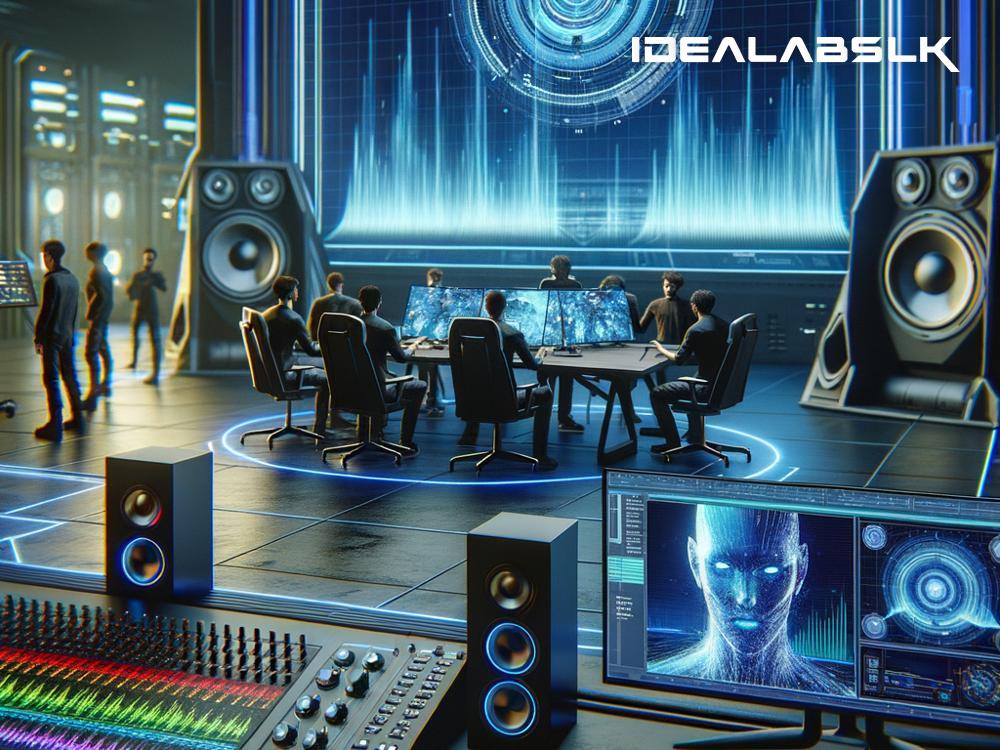As we look forward to 2025, the gaming industry is poised for yet another revolution, this time in the realm of audio. Artificial Intelligence (AI) has already begun to transform various aspects of our lives, but its impact on game audio and sound effects is only starting to be felt. By 2025, we can expect AI to significantly enhance game audio in ways that will make gaming more immersive, personal, and reactive to every player's actions. Let's dive into how AI will change the game (pun intended!) for audio and sound effects in the world of gaming.
The Evolution of Game Audio
Game audio has come a long way from the simple beeps and bops of arcade classics. Today, we enjoy high-fidelity soundscapes that can transport us into the game worlds, making them feel alive. However, as impressive as current sound technologies are, they mostly operate on pre-recorded audio files that are triggered by specific events in the game. While this can be effective, it lacks the dynamic and responsive nature that AI can offer. As we move towards 2025, AI is set to revolutionize this facet of gaming, making audio not just a backdrop, but an interactive element of gameplay.
AI and Dynamic Soundscapes
Imagine playing a game where the background music and sound effects adapt instantly not only to your actions but to the style and intensity of how you play. This is where AI comes into play. Through machine learning algorithms, game audio can be programmed to change based on a myriad of factors, such as the player's actions, the in-game environment, and even the emotional tone of the gameplay.
For instance, if you're sneaking through a dark alley in a game, the AI could lower the music volume, increase the echo effects, and augment subtle sound cues like footsteps or distant conversations to heighten the sense of suspense. If you're caught, the audio shifts dynamically, with the music tempo increasing and sound effects becoming more intense to match the sudden action. This level of responsiveness would make the gaming experience incredibly rich and engaging.
Personalized Audio Experiences
One of the most exciting prospects of AI in game audio is the ability to personalize soundscapes for individual players. By analyzing how a player interacts with the game, AI can tailor the sound effects and music to suit each player's preferences and play style.
For example, a player who enjoys exploring every nook and cranny of the game world might be treated to more ambient sounds and subtle musical cues that encourage exploration. In contrast, a player who prefers fast-paced action might hear more dynamic and high-energy music. This personalization doesn't just enhance the gaming experience; it revolutionizes it, making every playthrough unique to the player.
Voice Interaction and Immersion
Voice recognition technology, powered by AI, will also play a significant role in enhancing game audio. By 2025, games will likely feature more interactive dialogue options that are not just pre-recorded lines but AI-generated responses to player inputs. This means that conversations with game characters could become more natural and engaging, with characters reacting in real-time to what the player says or how they say it.
Furthermore, ambient conversations between NPCs (non-player characters) could be generated on the fly, making game worlds feel more alive and realistic. The ability of AI to understand and generate human-like speech will greatly increase the immersion and realism of game environments.
The Challenges Ahead
Despite the exciting possibilities, integrating AI into game audio does come with challenges. Creating AI systems that can understand and respond appropriately to the vast array of potential player actions requires significant advances in machine learning and natural language processing. Additionally, developers must ensure that the AI-enhanced audio serves the game's narrative and gameplay, rather than distracting from it.
Looking Forward
As we look towards 2025, it's clear that AI will play a pivotal role in enhancing game audio and sound effects. By making audio more dynamic, personalized, and interactive, AI will create more immersive and engaging gaming experiences that players have ever encountered. While there are challenges to overcome, the potential benefits make this an exciting time for both game developers and players alike. The future of game audio is not just about hearing the world of the game; it's about living in it, and AI is the key to unlocking that door.

